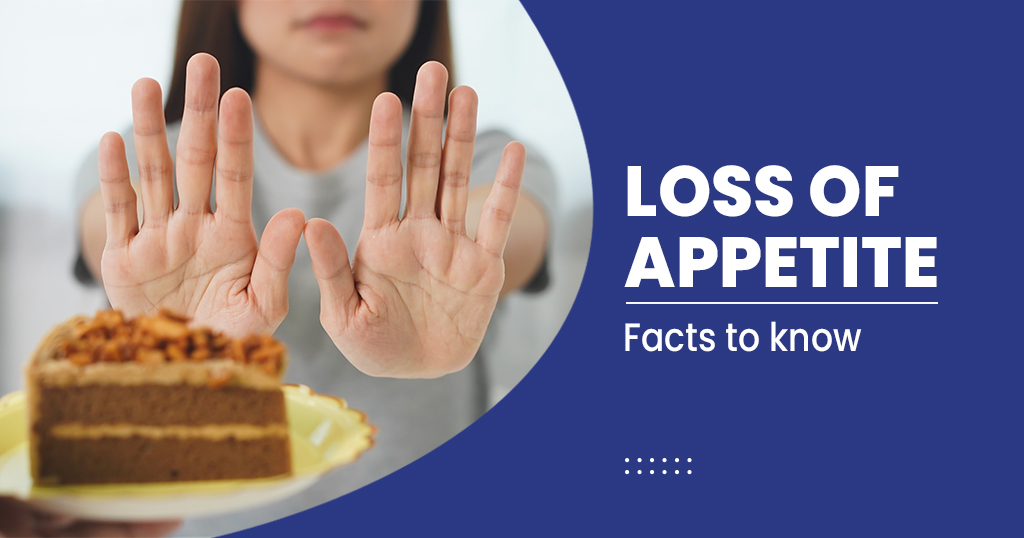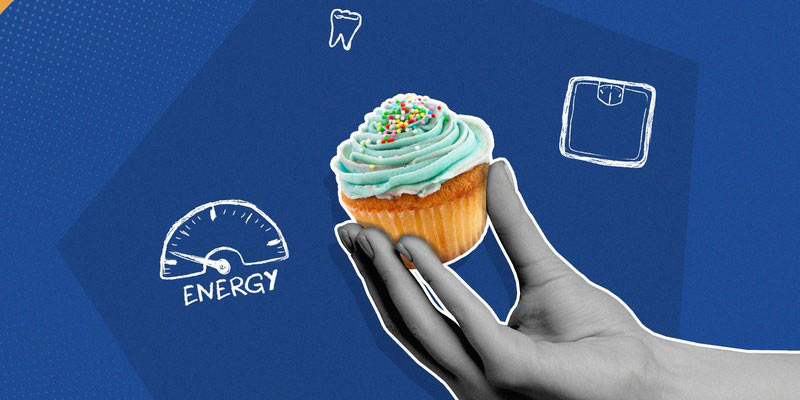Appetite loss can be caused by various conditions and factors, from medical to psychological. Having no appetite is inconvenient and could also be a sign of an underlying health problem that needs to be addressed.
No matter your situation, understanding the causes of appetite loss can help you better determine the best course of action for addressing this condition. In this blog post, we'll explore some common causes for loss of appetite and discuss ways to revive your desire for food.
Overview of Appetite Loss
Appetite loss can be an unsettling experience, and it’s important to understand what could be the source of your lack of appetite. There are many causes of decreased appetite that range from medical to psychological. Common physical health problems include digestive system diseases, hormonal imbalances, infections, or metabolic disorders.
Mental health issues such as depression, anxiety, or stress can also lead to appetite loss. In some cases, certain medicines may cause a decrease in your hunger as a side effect. Knowing the potential causes of your lack of appetite can help you choose the best treatment for your situation.
Appetite Loss Symptoms
The main symptom of appetite loss is having little to no interest in food. Other symptoms may include nausea, stomach pain, changes in taste and smell, or trouble chewing and swallowing food. If you are experiencing any of these symptoms alongside a lack of appetite, it’s important to consult your doctor as soon as possible to determine the underlying cause.
Reviving Your Appetite
You can take several steps to help revive your appetite, no matter what the cause. Eating small meals throughout the day rather than three large ones effectively combats appetite loss.
Additionally, adding fresh herbs and spices to your food or trying new recipes can make meals more enjoyable and delicious. Staying hydrated and keeping your energy levels up throughout the day is important, as dehydration or exhaustion can lead to appetite loss.
Common Causes of Appetite Loss
Stress and Anxiety:
Stress and anxiety can affect your mental health, leading to decreased appetite.
Medication Side Effects: Many medications have a loss of appetite listed as a side effect, so it’s important to read the label and talk to your doctor if you think this might be causing your lack of hunger.
Hormonal Imbalances:
Hormonal changes can affect your appetite in different ways. For example, women during menopause may experience a decreased appetite due to hormonal fluctuations.
Infections or Illnesses: Having an infection or a cold can lead decrease in appetite as the body is focusing its energy on healing itself.
Nutritional Deficiencies:
Nutrient deficiencies can make it difficult to maintain your appetite, as the body is not getting the necessary nutrients from food.
Depression:
Depression can cause a loss of interest in activities, including eating. If you are experiencing depression and appetite loss, speaking to your doctor about treatment options is important.
Strategies to Improve Your Appetite
Eat Smaller Meals More Frequently
Eating smaller meals more frequently can be a great way to revive your appetite. When eating smaller meals, you’ll have the opportunity to enjoy each meal for its taste rather than feeling overwhelmed by one large meal. Eating smaller portions also helps reduce feelings of fullness and satiety to better enjoy food. Additionally, spreading out smaller meals throughout the day can help keep your energy levels up and prevent you from feeling hungry between meals.
When eating smaller meals, it’s important to ensure that each meal contains a balanced combination of proteins, carbohydrates, and healthy fats. Protein helps keep you full for longer periods and also helps build muscle mass. Carbohydrates are essential for providing your body with energy, and healthy fats can aid digestion and absorption of nutrients. Eating a balanced diet will help you get all the essential vitamins and minerals your body needs to stay healthy.
Exercise Regularly
Regular exercise is important to maintaining a healthy lifestyle and can help revive your appetite. Exercise helps increase the production of hormones that stimulate hunger and encourage you to eat. Additionally, regular physical activity can boost your energy levels and motivate you to prepare and eat meals throughout the day.
When incorporating exercise into your routine, it’s important to ensure that you are engaging in enjoyable and stimulating activities. If you don’t like running on a treadmill, try a different form of physical activity, such as yoga or swimming. You could also try exercising with a friend so it feels more social and enjoyable.
Incorporate Nutritious Foods into Your Diet
In addition to exercise, it’s important to focus on your diet if you are struggling with a loss of appetite. Eating nutrient-dense foods high in protein can help keep you full for longer periods and provide the energy necessary for physical activity. Add wholesome ingredients such as fruits, vegetables, nuts, and seeds to your meals. These foods provide essential vitamins, minerals, and fiber for overall health and well-being.
It’s also important to incorporate healthy fats into your diet as they can help with digestion and absorption of nutrients. Avocado, olive oil, fatty fish such as salmon or tuna, and nut butter are all great sources of healthy fats. Eating a balanced diet composed of nutritious foods will not only help revive your appetite, but it can also improve your overall health and well-being.
When to See a Doctor for Loss of Appetite
If your appetite loss persists for over a couple of weeks, or if you experience other worrying symptoms such as fatigue, nausea, or weight loss, it’s important to speak to your doctor. They will be able to help diagnose the underlying cause and provide you with advice on how best to treat your condition. Your doctor might recommend a course of medication or other treatments, such as cognitive behavioral therapy (CBT), to help address any underlying psychological issues.
Loss of appetite can be frustrating, but it can be managed successfully with the right strategies and support. Eating small meals more frequently and incorporating nutritious foods into your diet are great ways to revive your appetite.
FAQs
Q: How Can I Address Loss of Appetite?
A: The first step is to identify the underlying cause. If you're experiencing medical symptoms, it's important to get checked out by a doctor to rule out any serious medical conditions causing your appetite loss. You can also try lifestyle changes, such as exercising or eating smaller portions throughout the day.
If anxiety or depression contribute to your appetite loss, seeking help from a mental health professional can be a great way to start addressing this issue. Finally, you may consider taking natural supplements such as ginger and peppermint to help improve digestion and stimulate the appetite.
Q: Is Appetite Loss Dangerous?
A: In general, appetite loss is not dangerous if it only lasts a few days. However, if your lack of desire for food persists longer than that, then it's important to consult with a doctor as soon as possible to make sure there isn't an underlying health issue causing the problem. Long-term appetite loss can also lead to nutritional deficiencies, so seeking medical care and ensuring you're eating a balanced diet is important.
Q: Can I Revive My Desire for Food?
A: Yes! Appetite loss can be addressed with lifestyle changes, medication (if appropriate), natural supplements, and therapy. It's important to identify the underlying cause first to tailor your approach accordingly.
Eating small meals throughout the day may help combat appetite loss, as can avoiding overly restrictive diets. Additionally, engaging in activities that you find pleasurable and calming can help to improve your overall well-being, allowing you to regain an appetite.
Conclusion
Loss of appetite does not have to be permanent. With a combination of lifestyle changes, medication (if appropriate), natural supplements, and therapy, improving your desire for food and addressing the underlying cause of your appetite loss is possible.
If you are experiencing ongoing appetite loss without relief, it's important to consult a doctor to determine if an underlying medical condition is causing your symptoms.




